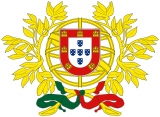
General elections were held in Denmark on 21 September 1971 and in the Faroe Islands on 5 October. The Social Democratic Party remained the largest in the Folketing, with 70 of the 179 seats. Voter turnout was 87% in Denmark proper, 57% in the Faroe Islands and 52% in Greenland.

Parliamentary elections were held in Hungary on 9 April 2006, with a second round of voting in 110 of the 176 single-member constituencies on 23 April. The Hungarian Socialist Party (MSZP) emerged as the largest party in the National Assembly with 186 of the 386 seats, and continued the coalition government with the Alliance of Free Democrats (SZDSZ). It marked the first time a government had been re-elected since the end of Communist rule. To date, this is the most recent national election in Hungary not won by Fidesz-KDNP, and the last in which the victorious party did not win a two-thirds supermajority in parliament.

The 1987 Italian general election was held in Italy on 14–15 June 1987. This election was the first Italian election in which the distance between the Christian Democrats and the Communists grew significantly instead of decreasing. Two parties that had not previously been in parliament won representation: the Greens with thirteen seats, and the Northern League with two.

Parliamentary elections were held in Russia on 12 December 1993. They were the first parliamentary elections in post-Soviet Russia and the only time to the Federation Council, with future members appointed by provincial legislatures and governors.
Early parliamentary elections were held in Iceland on 25 and 26 October 1959. Following the electoral reforms made after the June elections, the Independence Party won 16 of the 40 seats in the Lower House of the Althing.
Parliamentary elections were held in Hungary between 8 and 15 December 1926. The result was a victory for the Unity Party, which won 161 of the 245 seats in Parliament. István Bethlen remained Prime Minister.
Parliamentary elections were held in Hungary between 31 March and 7 April 1935. The result was a victory for the Party of National Unity, which won 164 of the 245 seats in Parliament. Gyula Gömbös remained Prime Minister.
Parliamentary elections were held in Hungary on 28 and 29 May 1939. The result was a victory for the Party of Hungarian Life, which won 181 of the 260 seats in Parliament and won 49 percent of the popular vote in the election. Pál Teleki remained Prime Minister. This was a major breakthrough for the far-right in Hungary; between them, far-right parties were officially credited with 49 seats and 25 percent of the vote.
General elections were held in Italy on 27 January 1861, with a second round on 3 February. The newly elected Parliament first convened in Turin on 4 March 1861, where, thirteen days later, it declared the unification of the country as the Kingdom of Italy.
Parliamentary elections were held in Iceland on 24 June 1934. They were the first held after reforms to the electoral system that increased the number of seats in the Lower House from 28 to 33 and ensured that all members of the Althing were elected at the same election. The Independence Party emerged as the largest party in the Lower House, winning 14 of the 33 seats.

General elections were held in Portugal on 28 April 1918, following a coup by Sidónio Pais in December 1917. The elections were boycotted by the Democratic Party, the Evolutionist Party and the Republican Union, who had won over 90% of the seats in the 1915 elections.

Parliamentary elections were held in Portugal on 16 December 1934, the first following the establishment of the one-party state known as the Estado Novo. The National Union was the only party to contest the elections, and no opposition candidates were allowed to run. It subsequently won all seats in the National Assembly, three of which were taken by women.

Parliamentary elections were held in Portugal on 30 October 1938. The country was a one-party state at the time and the National Union was the only party to contest the elections, with no opposition candidates allowed to run.

Parliamentary elections were held in Portugal on 1 November 1942. The country was a one-party state at the time and the National Union was the only party to contest the elections, with no opposition candidates allowed to run.

Parliamentary elections were held in Portugal on 18 November 1945. Following reforms introduced by António de Oliveira Salazar, they were the first elections in the Estado Novo to allow opposition parties. The Movement of Democratic Unity was formed by opposition activists, but alongside all opposition candidates, they withdrew from the election before polling day, alleging electoral fraud. As a result, only candidates of the National Union contested the election.

Parliamentary elections were held in Portugal on 13 November 1949. Following the late withdrawal of the Democratic Opposition, only eight opposition candidates ran against the ruling National Union.

Parliamentary elections were held in Portugal on 8 November 1953. The ruling National Union won all 120 seats.

Parliamentary elections were held in Portugal on 3 November 1957. The ruling National Union won all 120 seats.
General elections were held in Romania in June 1939. The Chamber of Deputies was elected on 1 June, whilst the Senate was elected a day later. They were the first since the introduction of the royal dictatorship of King Carol II under the 1938 constitution. Voters were presented with a single list from the National Renaissance Front, which had been the only legally permitted party in Romania since December.

Parliamentary elections were held in Portugal on 22 November 1822. The elections were the only vote held under the 1822 constitution, which provided for a unicameral legislature.









